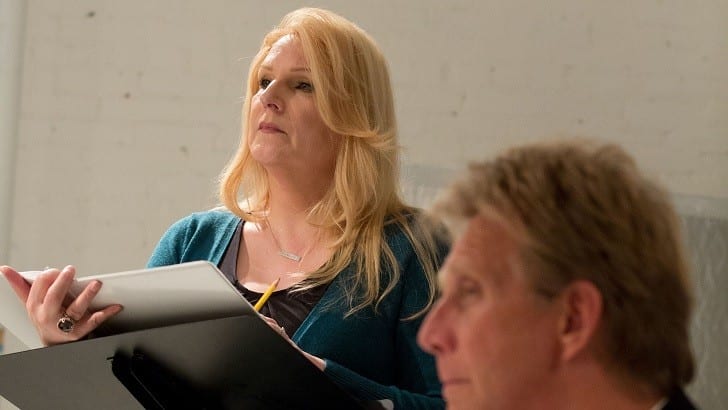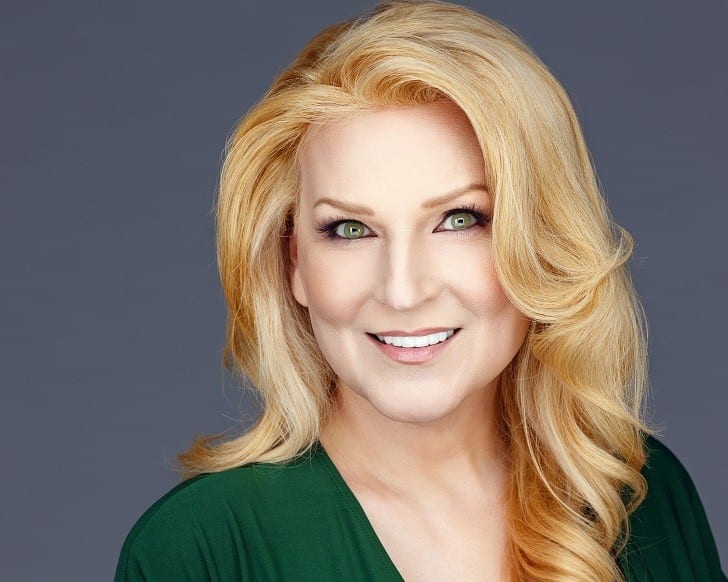
Award-winning journalist & transgender superstar preps for Trans Scripts at A.R.T.
In addition to being a homemaker, a wife, and a mother, Eden Lane is widely regarded as the first American transgender television reporter. Since 2009, she has served as host of In Focus with Eden Lane on Colorado Public Television.
Acting has always been a passion for Lane, who at one point (she wouldn’t tell me when) moved to New York to begin a career as an actress. Now, Lane returns to the boards in Trans Scripts, Part I: The Women at the American Repertory Theater.
Trans Scripts, written by Paul Lucas, is based on dozens of interviews that he conducted with transgender women around the world. Using their actual words, Lucas has crafted a moving and insightful look at the transgender community and their profoundly human stories.
This must be such an exciting time for you!
It’s extremely exciting. It’s a major endeavor and to be a part of it is absolutely exciting, you’ve chosen the perfect word.
How did you first become involved with Trans Scripts?
It’s funny, I had seen online postings about the casting and previous readings. And the playwright, Paul Lucas, was also looking for domestic theatres to do workshops or readings, and I cover the arts in Colorado and put him in touch with a theater there that I thought might be a good fit. So I started following along as this was developing and it was suggested, and I can’t remember by whom first, that I not only read the play but read for the play, which is kind of stunning, but I was flattered and thrilled and jumped right in.
So these are words from real people but they aren’t your words, correct?
They are not. There are bits and pieces of all seven stories that could be part of my story but they’re definitely not my words, they are definitely the words of these particular women. They’ve been very carefully curated to have a breadth of experience displayed in this play that I’ve never seen done before. In terms of the transgender experience, is what I mean.
How were these stories compiled? Was it like Chorus Line-style interviews over several years?
That’s not a bad analogy. I don’t know exactly how long Paul spent compiling these interviews; I think it was over a couple of years. I think he’s done close to 100, perhaps 70 interviews, and he selected the seven stories that really fit together to present an inclusive and broader picture. I think that there are times where he may have had to adapt pieces of someone else’s story to one of these characters just to fill it out, but the most amazing thing is that every word that’s being spoken in this play is actually the words from these women. None of the dialogue is invented.
He’s clear in the beginning of the script when he says that this should not be a therapy session. Might it be therapeutic for the audience, though?
I don’t think that it could be. I think an audience member might experience it more as an interview or a conversation because while there are seven of us on stage, of course, the eighth character is the audience. I think that it’s crafted in such a way that it will feel like a dialogue, a discussion, and not a sermon, not a therapy session, because it’s not only serious, there are so many shades in this piece that I think it’s still theater.
Yeah, it’s so well written and put together, it’s extremely tight.
It feels even tighter as we’ve been in the room with [director] Jo [Bonney] and Paul and they sculpt this into a completely new vision of this piece. It’s amazing and impressive and truly thrilling.

What do you hope someone coming to this show will walk away with?
I think the first hope that I would have is that they walk away feeling like they know these characters, therefore they know some transgender people. When you know someone, they’re not so much of an “other.” They can see a wider variety of transgender voices and experiences and know that not only do they know those transgender people, but there are parts of those transgender people’s lives and experiences that are so much like their own.
Do you feel an extra sense of responsibility knowing that these are real people’s words?
Absolutely. Knowing that you’re not mimicking these people but you’re still speaking their true words, telling their true life stories, it’s a huge responsibility. Their experiences are rich and deserve our respect and attention, but it’s also theater, so we have to make sure that we’re serving our story and we’re serving our audience at the same time. It’s a very complicated responsibility. Some of the people who come to the theater to see this, this may be the first chance they’re in an environment where they feel it’s okay to try to learn more about these members of the community that they may not have ever paid attention to before. That’s a lot of layers of responsibility.
This seems like a play that would be important to bring to multiple cities. Is there talk of a future beyond the ART?
Right now we’re so focused on making sure that we create the best production we can for the American Repertory Theater and the audiences there. We don’t dare let ourselves discuss it openly, but of course, we’re storytellers and you know that there are corners of our hearts that are eager to tell this story in as many places as possible. How is that for an answer? [laughs]
TRANS SCRIPTS, PART I: THE WOMEN. RUNS 1.19–2.5 AT THE AMERICAN REPERTORY THEATER, 64 BRATTLE ST., CAMBRIDGE. AMERICANREPERTORYTHEATER.ORG
Theater critic for TheaterMania & WBUR’s TheArtery | Theater Editor for DigBoston | film and music critic for EDGE Media | Boston Theater Critics Association.

